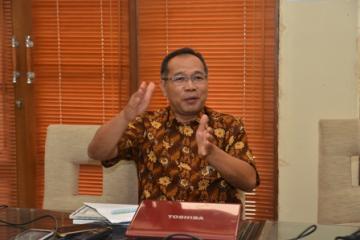Professor of IPB Developed the Bio-Pesticides for Environmentally Friendly Agriculture

Act No.12/1992 about Plant Cultivation System mandated that each farming implemented the Integrated Pest Management System (PHT). Control strategy with pesticides was positioned as the last alternative.
But the people still made the pesticides as the first choice in controlling Plant Pest Organisms (OPT). Application of synthetic pesticide which was very intensive, excessive and applied unwisely could cause the negative impacts which were very dangerous to OPT, human and environment. Another problem was the presence of pesticide residue which was very dangerous to the health of consumers of agricultural products and could decrease the value of sales of agricultural commodities.
Therefore, Professor of Faculty of Agriculture of Bogor Agricultural University (IPB) developed the environmentally-friendly biopesticides. In the scientific oration that he read in the Auditorium of Andi Hakim Nasoetion, Campus of IPB Darmaga (16/9), Prof.Dr. Dadang said that the plant produced two groups of compounds namely primary metabolites and secondary metabolites. One function of secondary metabolites was as a chemical defense against invading organisms including pests and pathogens.
Examples of plants that could be used as the biopesticides was Gomphrena globosa (Amaranthaceae) and A. Galanga which were proven to suppress the larval population of P. Xylostella on cabbage. Tobacco leaf juice (Nicotiana tabacum/Solanaceae) was used for controlling some pests. Of the family of Clusiaceae, the extract of sap and bark of Calophyllum soulattri gave the effect of high mortality in the larval of C. Pavonana and in the field could suppress the pest population of C. Pavonana type to 64.8%.
“Although the biopesticides are safer than the synthetic pesticides, some plant extracts may adversely affect useful insects, anthropods soil and cultivated land. Extract that works as a contact poison can have an adverse influence on predators, parasitoids, pollinators and other anthropods. The application of single or mixed extract can give the phytotoxic effect on the cultivated plant. Therefore, the comprehensive testing is needed to test the feasibility,” he said.
According to him, the development of biopesticides in Indonesia was still very open in line with the needs of the society on the healthy agricultural production. If it could not fully replace the role of synthetic pesticides, at least the biopesticides might contribute to reducing the use of synthetic pesticides and being an alternative in controlling the OPT in Indonesia.(zul)



